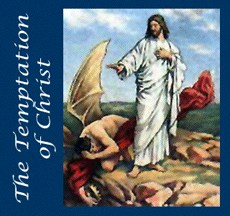
God has endowed his creatures with free will. Free will means nothing if God does not permit undesirable outcomes. When God created the angels, Satan rebelled and tried to place himself above God. For this sin he was banished;  as Jesus says, "I saw Satan fall like lightning from heaven." (Luke 10:18 New International Version) Satan, whose name means "adversary" in Hebrew, has been "the prince of this world" and "the god of this age." (John 12:31 and 2 Corinthians 4:4)
as Jesus says, "I saw Satan fall like lightning from heaven." (Luke 10:18 New International Version) Satan, whose name means "adversary" in Hebrew, has been "the prince of this world" and "the god of this age." (John 12:31 and 2 Corinthians 4:4)
All evil in the world is the result of a creature exercising free will. When a person chooses to do evil against another person, he brings suffering into the world. But what about diseases, natural disasters, and tragic accidents? These are caused by Satan's evil will, his malicious delight in bringing suffering to mankind.
Why didn't God annihilate Satan after his rebellion? An omnipotent Creator could destroy any disobedient creature in an instant. Why does God allow evil to go on in this world?
The Synoptic Gospels (Matthew, Mark and Luke) place the temptation of Jesus in the desert immediately after his baptism. Before Jesus begins his public ministry to mankind, he engages in a verbal contest with Satan. In some respects, this is the beginning of his public ministry. The story of the temptation  revolves around Jesus teaching Satan his proper relation to God. Jesus is trying to reform Satan. When Satan challenges Jesus to turn stones into bread, Jesus replies, "Man does not live on bread alone, but on every word that comes from the mouth of God." (Matthew 4:4) When Satan asks him to throw himself off of the temple, Jesus warns, "Do not put the Lord your God to the test." (Matthew 4:7) Finally, when Satan asks for Jesus to bow down and worship him in exchange for all the kingdoms of the world, Jesus proclaims, "Worship the Lord your God, and serve him only." (Matthew 4:10) It is only after Satan leaves Jesus, unmoved by his preaching, that Jesus goes on to his ministry in Galilee.
revolves around Jesus teaching Satan his proper relation to God. Jesus is trying to reform Satan. When Satan challenges Jesus to turn stones into bread, Jesus replies, "Man does not live on bread alone, but on every word that comes from the mouth of God." (Matthew 4:4) When Satan asks him to throw himself off of the temple, Jesus warns, "Do not put the Lord your God to the test." (Matthew 4:7) Finally, when Satan asks for Jesus to bow down and worship him in exchange for all the kingdoms of the world, Jesus proclaims, "Worship the Lord your God, and serve him only." (Matthew 4:10) It is only after Satan leaves Jesus, unmoved by his preaching, that Jesus goes on to his ministry in Galilee.
| © copyright 2008 PDH |   |


